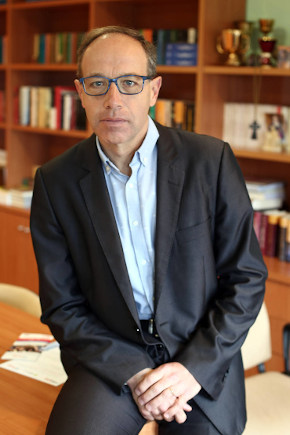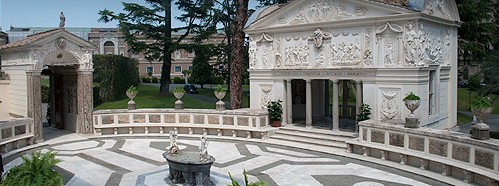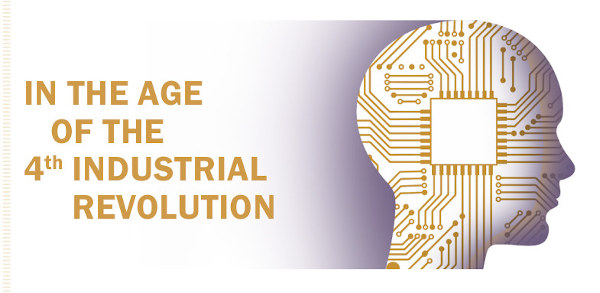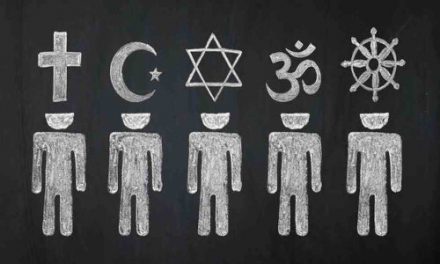Francesc Torralba participates in the International Symposium “Dignity and the future of work in the age of the 4th Industrial Revolution” organized by the Pontifical Academy of Social Sciences

Dr. Francesc Torralba
 Francesc Torralba, director of the Chair Ethos of Applied Ethics at the Ramon Llull University and the Chair of the Christian Thought of the Bishopric of Urgell and full academician of the Royal European Academy of Doctors-Barcelona 1914 (RAED), participated in the International Symposium “Dignity and the future of work in the age of the 4th Industrial Revolution”, organized by the Pontifical Academy of Social Sciences in Vatican City on October 14 and 15 with the presentation “The alliance between transhumanism and global neoliberalism. We need a new technoethics”, where he addressed the challenges that arise after the emergence of transhumanism and technologies that are making a life beyond biological existence a reality.
Francesc Torralba, director of the Chair Ethos of Applied Ethics at the Ramon Llull University and the Chair of the Christian Thought of the Bishopric of Urgell and full academician of the Royal European Academy of Doctors-Barcelona 1914 (RAED), participated in the International Symposium “Dignity and the future of work in the age of the 4th Industrial Revolution”, organized by the Pontifical Academy of Social Sciences in Vatican City on October 14 and 15 with the presentation “The alliance between transhumanism and global neoliberalism. We need a new technoethics”, where he addressed the challenges that arise after the emergence of transhumanism and technologies that are making a life beyond biological existence a reality.
“Inspired by the work of British biologist Julian Huxley, transhumanism is a kind of philosophy of life that seeks the continuation and acceleration of the evolution of intelligent life beyond its current human form and its human limitations through the science and technology, guided by principles and values that promote life”, the academician begins the description of a subject before contextualizing it and analyzing it from a moral point of view. Because, for Torralba, the neo-liberal thinking that today dominates the world and gives wings to these technological advances makes transhumanism a mechanism at the service of the market.
Starting, therefore, from the premise that the human being in the globalized neoliberal culture has become “an autistic performance machine”, according to his own definition, the thinker considers that the supposed freedom guaranteed by democracies to choose the improvement that wants to legitimize transhumanism is difficult to guarantee within the framework of a globalized neoliberal system in which what counts is the maximum performance with the lowest possible cost. “Transhumanism frees us, perhaps, from fatigue, but not from a system that bases its success on growth, overproduction and hyperconsumism. We need a new global technoethics, based on respect for the sublime dignity of all human beings, in equity and social justice”.
 In this context, Torralba believes that ethics inspired by the Christian tradition must be recognized as a public interlocutor. “The digital world allows the possibilities of communication and interaction never before known in history. Against the new technocratic feudalism, the empowerment of civil society and the creation of a new global consciousness are decisive”, he says. In order to establish the need for interdisciplinary work between ethics and economics, an economy focused on the respect of each human being, a global ethical deliberation committee to ensure global progress and not a one-dimensional progress of society and a philosophy for new technology.
In this context, Torralba believes that ethics inspired by the Christian tradition must be recognized as a public interlocutor. “The digital world allows the possibilities of communication and interaction never before known in history. Against the new technocratic feudalism, the empowerment of civil society and the creation of a new global consciousness are decisive”, he says. In order to establish the need for interdisciplinary work between ethics and economics, an economy focused on the respect of each human being, a global ethical deliberation committee to ensure global progress and not a one-dimensional progress of society and a philosophy for new technology.
“There is a new religion in the Western world. The name of the new religion is technocentrism. Transhumanism is a materialistic ideology. That is a new form of anthropological reductionism. According to this conception of the human being, there is no soul or spiritual dimension in the constitution of a person”, concludes the academician to look at the roots of Christianity that humanism that should guide any transhumanism.





